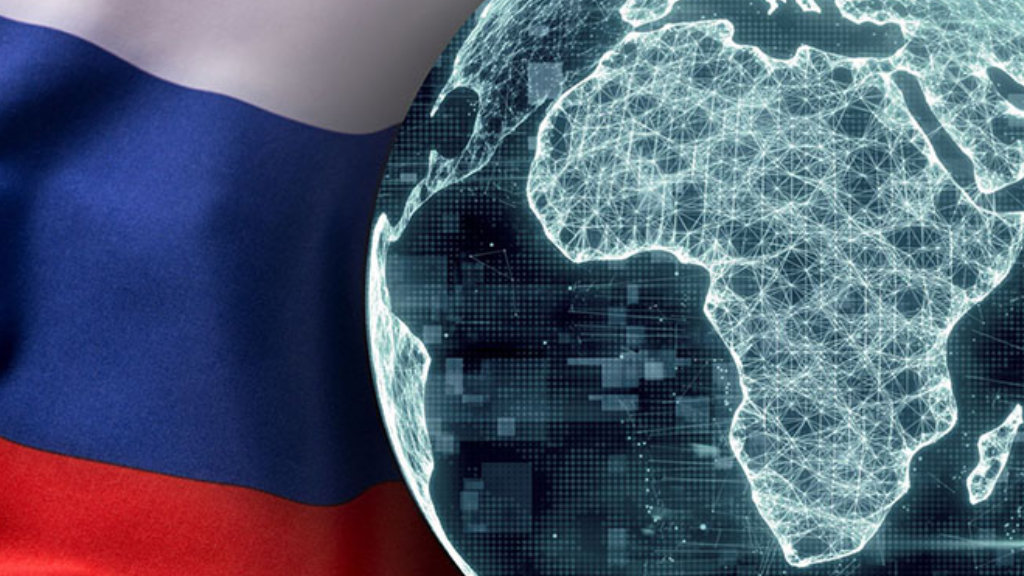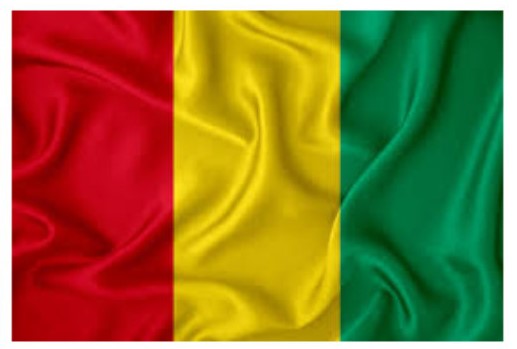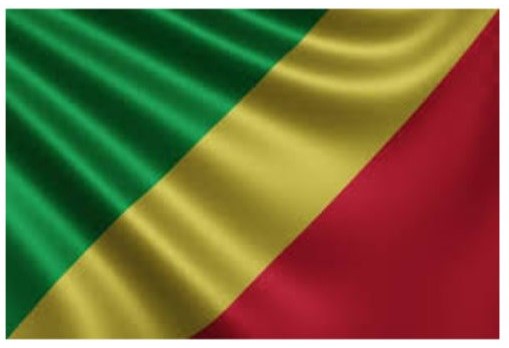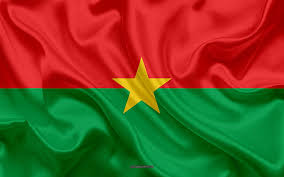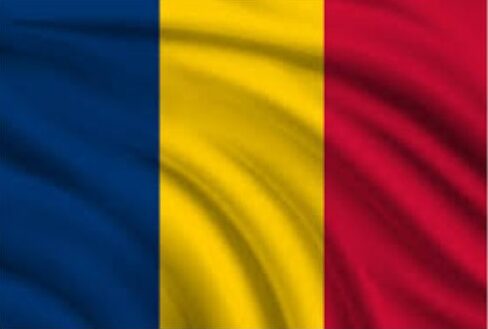Russian Foreign Minister Sergei Lavrov has been on a four-country tour on Africa this past few days, visiting Guinea, The Republic of Congo, Burkina Faso and Chad. Russia has also announced it is to open Embassies in Sierra Leone, Niger and South Sudan.
We covered Lavrov’s visit and discussed Russia’s trade with each of these countries in the following articles:
In addition to these countries, Egypt and Ethiopia joined the BRICS in January, while Algeria has stated it intends to join the Shanghai Cooperation Organisation, and Mali has committed to solar and nuclear power projects with Rostacom. Zimbabwe’s President is meeting with Russian President Vladimir Putin in St.Petersburg, while the current SPIEF conference includes for the first time Russia-Africa Projects as part of the Russia–Africa Partnership Forum – illustrating the importance Russia has placed on developing diplomatic and trade ties with Africa during 2024.
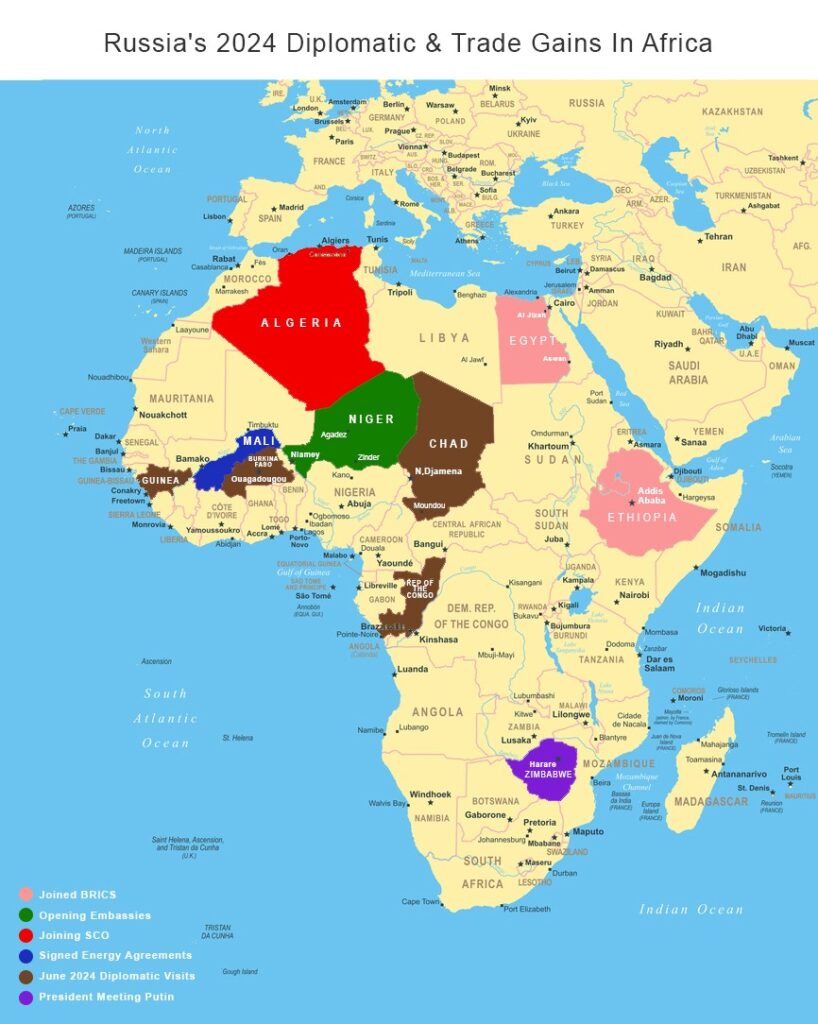
Of note is that of these countries, Algeria, Burkina Faso, Chad, Guinea, Mali and Niger were ex-French colonies and Sierra Leone, South Sudan, and Zimbabwe were British. Egypt was jointly French and British administered. Although the height of the colonial era disappeared upon independence in the 1960’s and 1970’s, trade and development with these countries remained heavily influenced by Paris and London. However, increasing unhappiness with what has often been regarded as exploitative contracts and political interference coupled with a lack of actual investment and overall neglect have paved the way for Moscow to make significant inroads.
Several of these countries have undergone recent military coups amid regional violence, caused in part by Islamic insurgents. Many remain very poor despite their colonial legacies and two hundred years of trade with Europe.
Russia’s immediate role will be to provide security in many of these countries, and to instil sustainable peace – which can then lead to development. Russia will take the lead in energy cooperation, as well as the provision of fertilizers and cheaper grain than is available from Europe. Other industries such as fishing – especially in West Africa and the Atlantic Ocean stocks may also be of interest, especially as Russia needs to replace its previous European suppliers.
Of interest to note will be China’s involvement. It too has been making inroads into Africa, and especially as part of its Belt & Road Initiative. China is adept at building infrastructure, with its ability to lend money and to recoup those investments via regional IPOs and retaining equity investments in cash-flow generating projects such as railways. But doing this requires longer-term security – Russia’s forte.
There seems to be no doubt that a future trend may well be joint Chinese-Russian projects in Africa. What is also apparent is that Africa is in the process of shaking off its British and French colonial legacy – and that one of the main beneficiaries will be Russia.
Further Reading
Russia-Africa 2024 Trade & Development
Russia’s trade and investments in Africa are extensively discussed in our 2024 Russia’s Pivot To Asia guide. This is a complimentary download and can be accessed in English here and Russian here.
Continue Reading





 Русский
Русский








